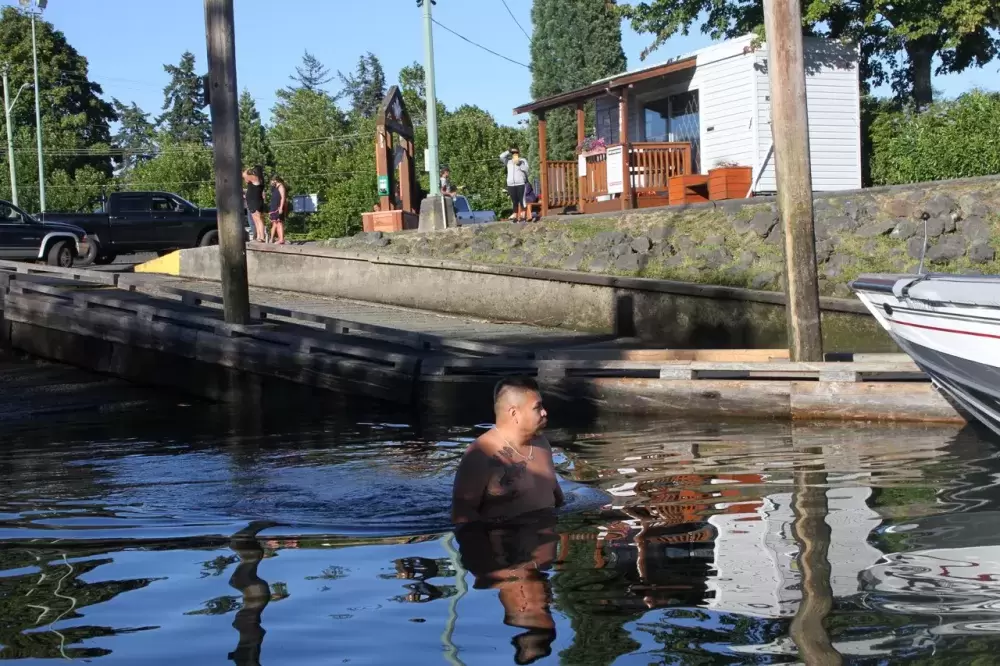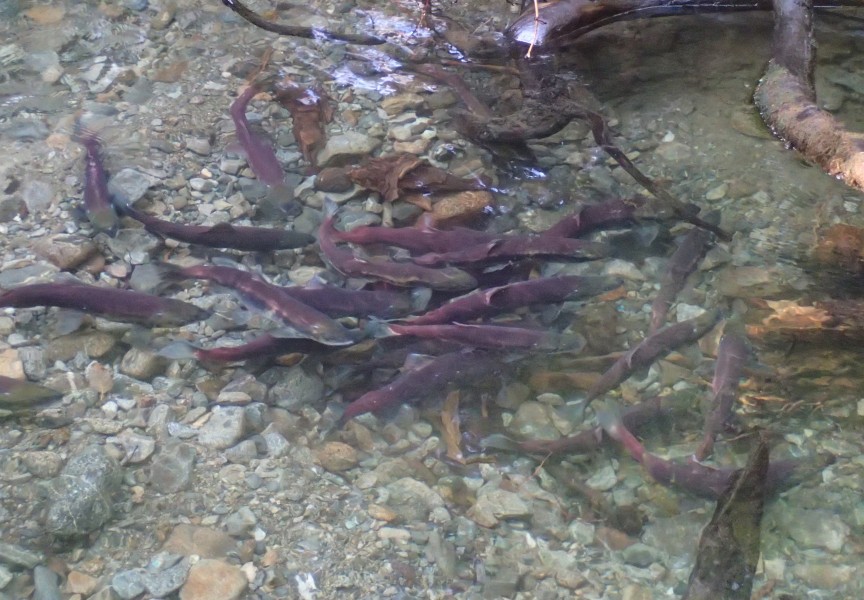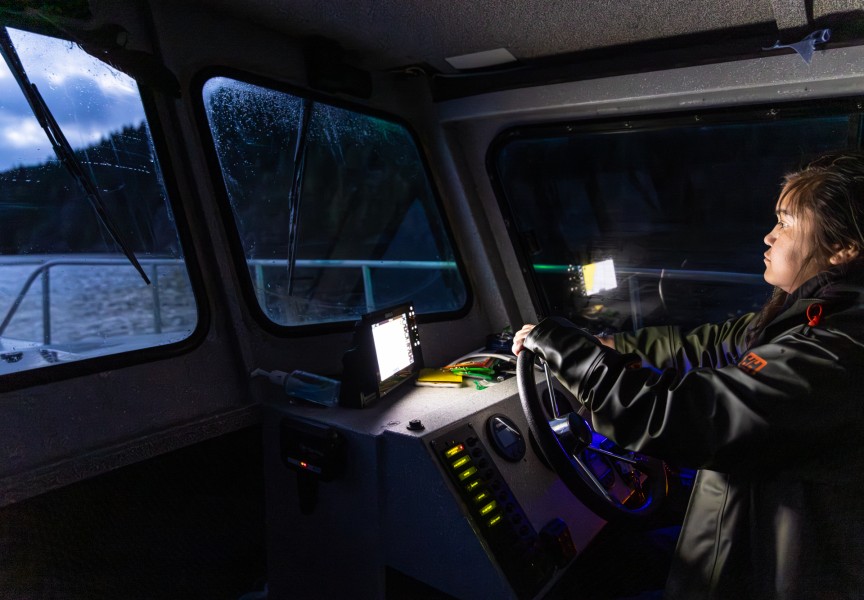On the day after Tseshaht members blocked boat access to the Somass River in protest of failed negotiations with DFO, the federal department is pointing to the First Nation’s position earlier this summer.
Now the Tseshaht estimate to lose $1.25 million in lost revenue by not being permitted to catch and commercially sell chinook salmon on their territorial river, as an economic opportunity (EO) agreement remains unsigned by representatives from Fisheries and Oceans Canada.
“It’s not fair to our people,” said Martin Watts, one of the First Nation’s fisheries negotiators, as he stood by a pickup truck blocking ramp access to the Somass on Sept. 2. “There was to be an EO fishery tonight, and they failed to sign an agreement with Tseshaht.”
For most of the last 28 years, Tseshaht and neighboring Hupacasath have made formal agreements with DFO to catch and commercially sell different species of salmon migrating up the Alberni Inlet and into the Somass River.
“EO fisheries agreements set out allocations for food, social and ceremonial (FSC) and sale as well as conditions that are intended to support the orderly management of the fishery for all returning salmon stocks,” wrote Louise Girouard, the DFO’s regional director of communications. “These agreements are intended to provide greater certainty to First Nations and other harvesters to clearly set out allocations for salmon species.”
This summer’s dispute goes back to the sockeye salmon run, which began in late June. DFO had set allocations for different groups to harvest from the area, but Tseshaht did not agree to these numbers imposed on a river they had managed for thousands of years.
“Tseshaht did not consent to the commercial and recreational fisheries,” wrote Hugh Braker, the First Nation’s lead negotiator, in a July 14 letter to Fisheries Minister Bernadette Jordan. “I would note that the commercial and recreational fisheries began before the Tseshaht fisheries began. Tseshaht did not agree to that aspect either.”
Without signing the agreement, members of the First Nation opted to fish sockeye under their Aboriginal right to priority access behind conservation needs. Instead of selling to commercial buyers, members sold their catches on the side of the road.
But now the breakdown in negotiations has led DFO staff to sit on a chinook agreement drafted by the department that Tseshaht signed. This EO agreement sets allocations at 2,600 chinook for Maa-nulth nations, 18,100 combined for Tseshaht and Hupacasath, while commercial seine and gillnet boats are allotted a total of 18,100 – a figure some Tseshaht members say has been exceeded by 10,000 fish.
According to Fisheries and Oceans, Hupacasath can commercially harvest under this agreement, but without the DFO signatures, Tseshaht cannot.
“[W]e are now mid-way through the season for the chinook fishery and the Tseshaht nation did not agree or follow provisions in the draft agreement for allocations and management of the sockeye fishery which is now complete,” wrote the DFO spokesperson. “The absence of a signed agreement during the sockeye fishery unfortunately created an unstable situation and was detrimental to other harvesters, including Hupacasath. EO fisheries agreements with [First Nations] are a fundamental part of how the department ensures an orderly and well-managed fishery for all involved.”
“Since the beginning of negotiations this summer, Tseshaht has become more convinced that the objective of the Department of Fisheries and Oceans is to penalize and punish Tseshaht,” wrote Braker in another letter sent to the fisheries minister on Sept. 2. “Your ministry staff are angry because Tseshaht objected to their actions and failure to address Tseshaht concerns earlier this summer.”
Recent negotiations have also included agreements DFO has put to the Somass First Nations that would be in place for years. Hupacasath signed a four-year EO agreement, but Tseshaht did not, fearing that details of the arrangement would be altered by DFO as circumstances arose.
“I ask you minister, what other group, besides Aboriginal people, in Canada is told to sign an agreement first and then negotiate in respect of that agreement after it is signed?” asked Braker in his correspondence to Ottawa.
With the absence of an economic opportunity agreement, the Tseshaht will be limited to harvesting for only food, social and ceremonial purposes, “but sale of fish will not be permitted,” said the DFO.
“DFO remains committed to substantive negotiations over the fall and winter regarding Tseshaht’s outstanding concerns, and remains committed to authorizing food, social and ceremonial fisheries for Tseshaht harvesters as appropriate based on returns and consistent with allocations,” added Girouard.







